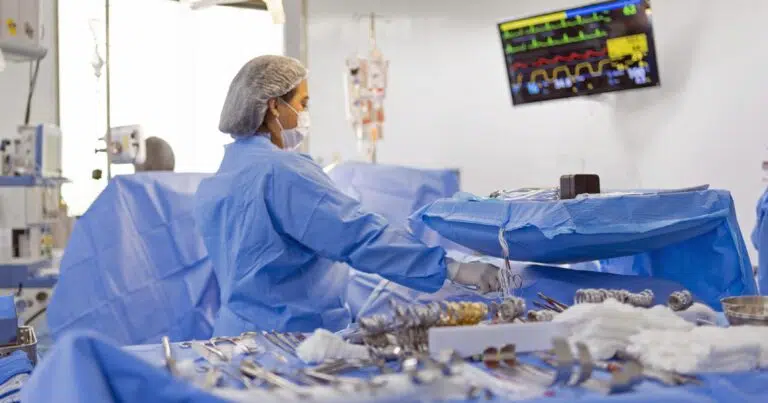Certified Surgical Technologist Career Guide
Looking for a different career guide?
Overview
A Certified Surgical Technologist (CST) is a vital member of the surgical team who plays a crucial role in ensuring a safe and efficient surgical environment. CSTs work alongside surgeons, nurses and other healthcare professionals to provide the necessary instruments, equipment and supplies during surgical procedures. Their expertise contributes to the success of surgeries and the well-being of
Education
To become a Certified Surgical Technologist, individuals typically need to complete a formal education program. This can be a diploma, certificate or associate degree program in surgical technology. These programs provide the necessary knowledge and hands-on skills required for the role. Aspiring CSTs can choose from various accredited institutions offering surgical technology programs.
Qualifications

Skills
Staff and Travel Certified Surgical Technologists need a blend of technical, organizational and interpersonal skills. They must have a deep understanding of surgical procedures, sterile techniques and infection control practices. Attention to detail, dexterity, and the ability to think on their feet are essential for ensuring a smooth surgical process. Effective communication and teamwork skills are also crucial
Responsibilities
CSTs have diverse responsibilities throughout the surgical process. They prepare the operating room, sterilize and set up instruments and ensure all equipment is functional. During surgery, they anticipate the surgeon's needs, handle instruments safely and maintain a sterile environment. CSTs assist with wound closure and ensure proper disposal of contaminated materials. They also contribute to the post-operative cleanup and restocking
Salary Insights
The average salary for a Certified Surgical Technologist is $1,843.01 per week.
Last updated on December 13, 2024. Based on active jobs on Vivian.com.
Pros & Cons
Becoming a Certified Surgical Technologist offers several advantages. CSTs play a critical role in surgeries, making a direct impact on patient outcomes. The job allows for exposure to a variety of surgical procedures, which can be intellectually stimulating. It's a career that often offers stable employment and opportunities for advancement, as well as the chance to work in various healthcare
Some of the content on this page was enhanced using artificial intelligence.
Join over 1 million healthcare workers that are getting a head start with Vivian.
Join Vivian





